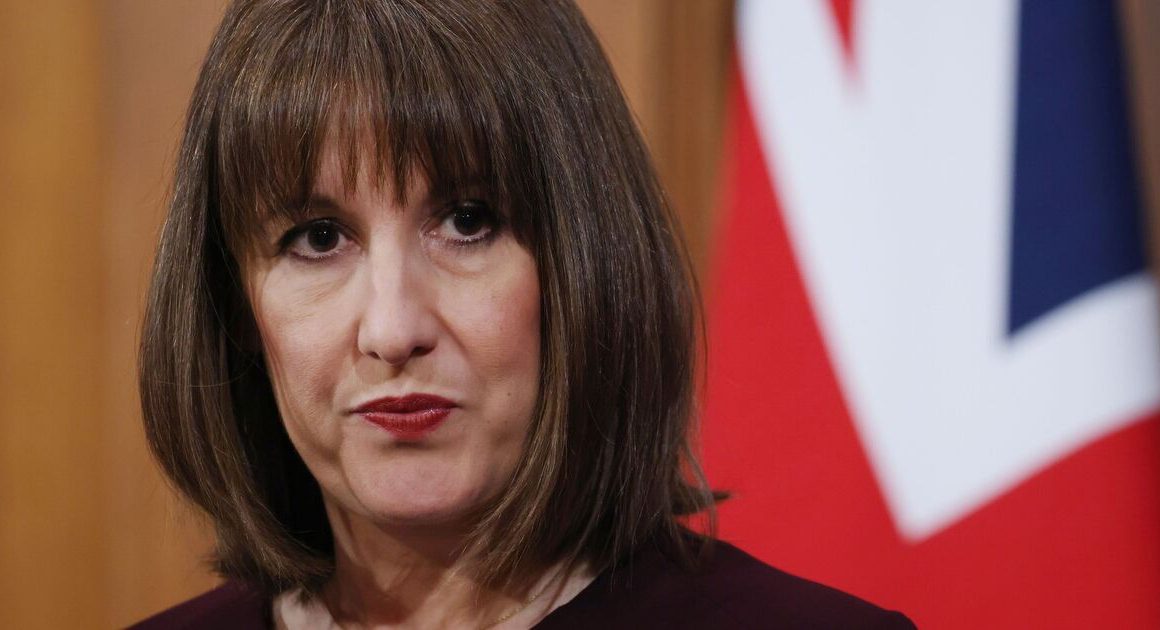A 63-year-old grandmother from northern Michigan might not be what you picture when you think of a great defender of democracy — but the Antrim County clerk says she’s determined to protect and restore faith in the electoral system.
Sheryl Guy has worked for the municipality for 45 years.
“I graduated from high school on a Thursday, had my interview on a Friday and started on a Monday,” she said in a recent interview. “And I’ve been here ever since.”
These days, she’s pushing back against election deniers.
“Donald Trump and his people used Antrim County as an example that the election had been stolen,” she said defiantly. “I can’t let that happen in my county.”
Michigan isn’t just a crucial battleground state, it’s also become the epicentre of election denial after a 2020 counting error was torqued into ‘proof’ of widespread voter fraud. CBC’s Nick Purdon goes there to learn more about the fallout and how election officials are fighting to restore trust in the system at the heart of American democracy.
The mistake heard around the country
Antrim County, a sparsely populated, little-known part of northern Michigan, became pivotal in the rise of election denial in the U.S. after a mistake made on election day in 2020. The Michigan department of state has reviewed what happened and concluded that human error, such as not properly preparing ballot scanners or the ballots themselves, skewed initial voting results in the county of 23,000.
Those preliminary results had U.S. President Joe Biden leading Trump by thousands of votes, even though the county had historically been a Republican stronghold.
The morning after the election, Guy remembers being in the drive-thru at her local McDonald’s when she got a message on her phone and learned of the mistake. She went right back to work until she and her team figured out the problem.
“There was an honest mistake and we owned it and we fixed it,” Guy said.
Once the ballots had been properly counted, the county went Republican by almost 4,000 votes.
But that wasn’t the end of the story.
In fact, it became the spark Donald Trump used to suggest there had been systemic election fraud across the country. He cited what happened in Antrim County in his speech on Jan. 6, 2021, before the riots in Washington and the attack on the Capitol.
“It was horrifying,” Guy said when she saw Trump’s speech on TV.
After that, her life changed. Despite being a lifelong Republican who had voted for Trump in 2016 and 2020, Guy found herself the target of Trump supporters.
“I endured harassment, threats,” said Guy, who got emails and phone calls accusing her of rigging the election. “One of the messages left was that I deserved to be put in front of a firing squad.”
Denying elections — but running in one anyway
At a popular dining establishment on the shores of Torch Lake in northern Michigan, Guy addresses a small crowd gathered to support her bid for re-election as county clerk.
There’s shrimp, cheese and crackers and a cash bar.
“This election is an election on steroids,” Guy said as part of her speech that October night. “We recovered from 2020. We owned the error that happened and we’re ready to move on.”
But not everyone agrees.
Tony Smedra listens with his tattooed arms crossed. Smedra, 38, runs the Torch Lake Beer Company. He said he believes there was fraud committed in the 2020 election.
“A lot of shady stuff happened last time,” he said. “A lot of people my age, they didn’t even want to vote this time. They just think it’s crooked, so there’s no point.”
But although Smedra said he doesn’t believe elections are fair, he’s running in one: He’s hoping to get elected as clerk in northern Michigan’s Helena township on Nov. 5.
When asked how he trusts the process enough, given his lack of faith, to put his name on the ballot, Smedra smiles.
“I honestly don’t,” he said. “So that’s why I am getting involved and going to be the inside man and see what’s going on behind the scenes.”
Smedra is running as a Republican and said he was motivated to get into politics because his daughter recently turned 18 and can now vote.
“I hope that it’s not as crooked and there’s no shady stuff going on, but I will find out.”
The checks and balances are there.– Antrim County clerk Sheryl Guy, on the U.S. voting system
Though many echo Smedra’s feelings, numerous investigations into the 2020 U.S. election found the widespread fraud that the Trump campaign and many Republicans claim cost them the election did not happen.
Rep. Liz Cheney, the former chair of the House Republican Conference, stated on Feb. 23, 2021: “There were over 60 court cases where judges, including judges appointed by President Trump and other Republican presidents, looked at the evidence in many cases and said there is not widespread fraud.”
And Guy has a message for those who believe there was fraud in her county or who deny election results elsewhere in the United States.
“The checks and balances are there,” she said. “If you don’t believe it, shame on you.”
Has election denial gone mainstream in the U.S.?
Jason Cabel Roe is a longtime Republican strategist and the former executive director of the Michigan Republican Party.
From his office in Bloomfield Hills, Mich., about 40 kilometres north of Detroit, Roe is working to get a Republican to win a highly contested congressional race.
“I think there’s probably about 40 per cent of Americans that are skeptical that they can trust the integrity of our election systems today,” Roe said, an opinion backed up by some polls in the last year.
And Trump has tried to capitalize on this, Roe said.
“Part of what all Republican candidates and consultants are in some way conveying is if you think there is going to be cheating, and you want to make sure it doesn’t matter, then get out there and vote,” Roe said.
Roe said he’s meeting more people who have lost faith in the integrity of election results.
“Even in the last couple of weeks, I’ve run into people that would seem perfectly normal — suburban, college-educated parents — and the election comes up, and it’s almost like clockwork, [they say], ‘They’re just going to rig it and steal it.'”
Roe blames media consumption, in part, for the fact that Americans are politically segregated, noting how many Democrats watch MSNBC and CNN, while more Republicans watch Fox.
“I think in this country we are increasingly living amongst people that are like-minded,” he said. “And so I have run into countless people who don’t know anyone who voted for Joe Biden. So it’s impossible for them to believe that Biden won.”
Silver lining
Lisa Posthumus Lyons, the county clerk in Kent County, Mich., stands in front of a classroom of people training to be election inspectors.
“I’m so thankful to have all of you stepping in and stepping up and playing a part in this true cornerstone of our republic,” she tells the class.
Lyons said she believes the scrutiny and mistrust in U.S. elections has a silver lining: It used to be hard to get people to work elections — not any more.
“If 2020 taught me anything, it’s that, beyond casting their ballot, voters know very little about the process,” Lyons said. “And I really believe the key to trusting the process is education and participation — that’s kind of what I’ve made my mission the last four years.”
Lyons said she hopes the more people get involved in elections, the more they will learn to trust them again.
“It makes me sad when I hear so many people not believe the outcome of the election. But I also, I don’t want to dismiss folks outright,” she said. “I want them to have an opportunity to share their concern and to really meet that head on.”
Cyndi Sullivan sits at the back of the class. When she’s asked why she decided to become an election inspector, she said it’s because she’s skeptical.
“It’s important because if there is fraud in the elections — in our government — then the people have a right to know,” Sullivan said. “We have a right to know what’s going on.”
It’s comments like Sullivan’s that highlight what Lyons says is at stake on Nov. 5 beyond the country’s choice for president: Belief in the electoral system itself.
“It’s so important to have faith in the process. Otherwise, what are we doing? You can’t have a government of the people, by the people and for the people if the people don’t believe in it.”
Watch full episodes of The National on CBC Gem, the CBC’s streaming service.












